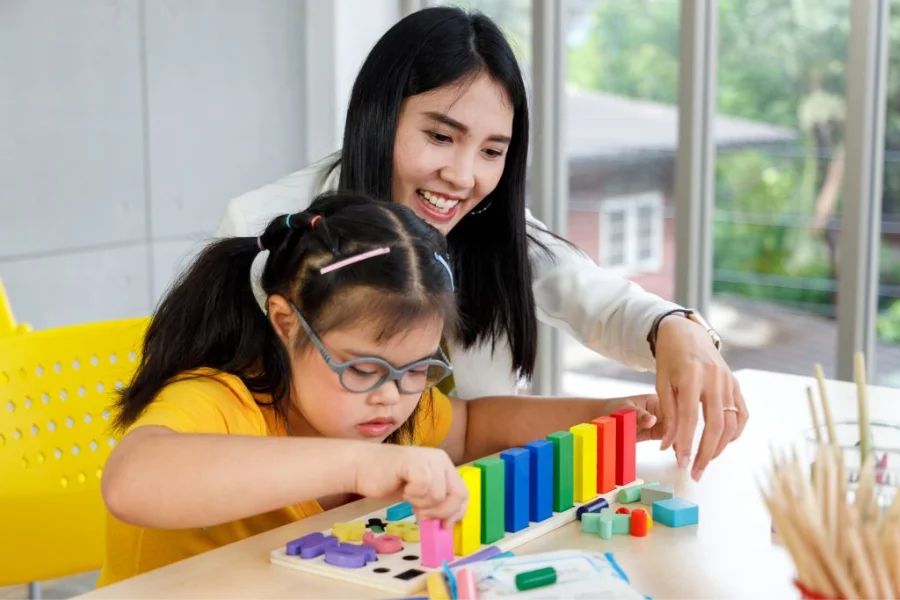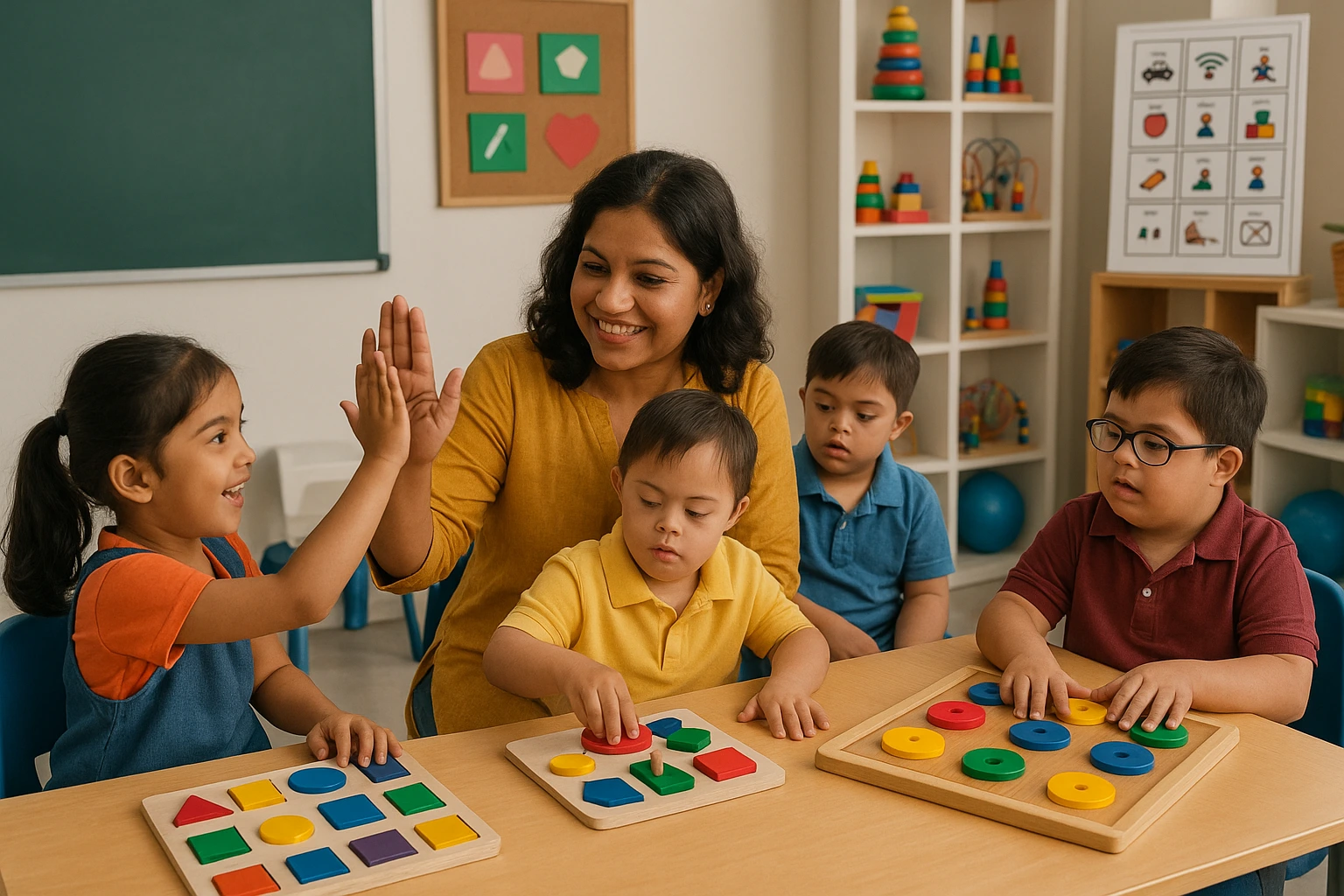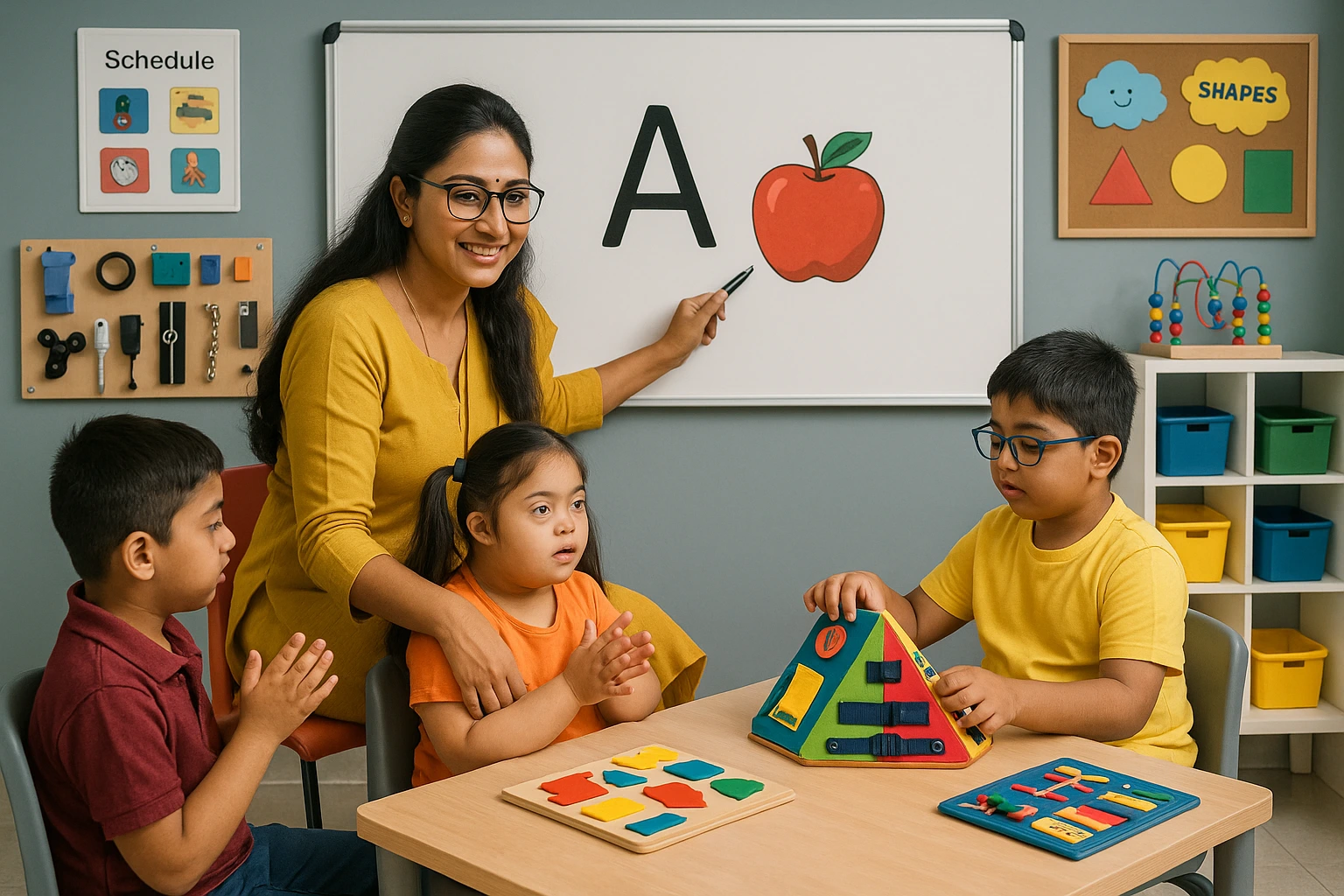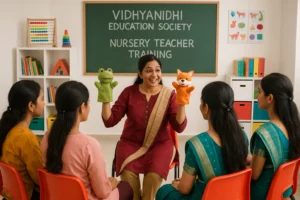
Source: istock
Each child studies differently, and some need additional help to keep pace with their peers. Remedial Education comes in handy here by giving targeted support to fill learning gaps and enhance confidence. Teachers play a significant role here, employing special techniques to make students comprehend and perform well. With Remedial Education, teachers can intervene, helping children academically grow and become emotionally robust.
How you can Empower Struggling Students through teacher-led Led Interventions?
The first step in motivating struggling students is to identify their particular difficulties and provide quick, specific support. Students can catch up and get back confidence in their learning capacities through organized opportunities created by teacher-led interventions.
Here’s how educators can make a real impact:
Identify Specific Learning Needs
To identify the areas in which students remain behind, use observations and assessments. When the actual cause of the problem is determined it helps to design effective interventions that directly tackle the issue.
Define Appropriate and clear objectives
Follow the method of chunking that involves breaking down of complex process into simple steps. When the child masters the simple steps, he is confident to take on the complex challenges.
Use Targeted Instruction
Use simplified and child-oriented instructions that are understood easily by the child. This helps them to move on with their learning easily and comfortably.
Incorporate Multi-Sensory Strategies
Target the particular skills the students are having trouble with. Individual or small group instruction provides the opportunity for direct and concentrated instruction.
Build a Supportive Environment
Target the specific skills students struggle with. Individual or small group instruction permits the teacher to offer direct and specific help.
Track Progress Regularly
Track growth and adjust methods as needed. Progress charts and reviews can motivate students and highlight their improvement.
Collaborate with Families
Keep parents informed and involved. Their support can cover education beyond the classroom and support the intervention at home.
By incorporating the above approaches, followed by concrete guidance from the educators, it makes a lot of difference to the child’s academic journey, ensuring that children get engaged and participate completely in all classroom activities, developing an innate connection with education.

Inside the Classrooms Where Transformation Begins
Classrooms are not just a place to study; they’re a daily place of development, change and self-discovery. Students grow in character, acquire skills, and develop the self-assurance necessary to realize their full potential within these four walls.
Here’s what makes these classrooms special:
Supportive Teacher-Student Relationships
Students who are connected by teachers make a sense of trust and safety, allowing students to show themselves freely and take educational risks.
Personalized Teaching Approaches
Since every child learns uniquely, methods have to be adapted to every child’s needs, ensuring that every child understands the topic that is being taught.
Promote Emotional Growth
A child’s overall journey includes their emotional progress as well, so efforts and guidance should be given to foster the child’s emotional well-being, ensuring they become well-rounded individuals.
Interactive Learning
Active interaction with peers, classmates through which communication fosters, handling real-life situations helps children to connect their knowledge to their day-to-day functioning, making it easier to remember their lessons.
Continuous support
A child succeeds when his little achievements are recognized, which helps him believe in his capabilities. Supporting the child by applauding his small wins makes a huge difference in their journey through life.
Inclusive Environment
Respect for various backgrounds and learning styles nurtures unity and belonging, creating a space where every student feels valued.
Change is not an overnight phenomenon; it takes perseverance and time to gradually uplift the child, build his morale, and make him confident to take on the challenges of the complex world effectively.
For more details on the SEN Course, Call/WhatsApp at +919321024137 / +919869866277
To download the brochure of the SEN Course, Click Here!
Turning Academic Struggles into Success Stories
Children with Learning Disabilities face extreme academic struggles that can leave them frustrated and disappointed at times. But with the guidance and support of a skilled special educator, academic struggles can be turned into success stories. Special Educators are equipped with practical classroom training and knowledge, which helps them make a positive impact on the lives of young students, enabling them to function in a regular classroom setup with confidence and determination.
Real-Life Success Stories from India
Aarav from Mumbai – From Failing Grades to Class Topper
Struggling with reading knowledge and basic math in Grade 4, Aarav faced constant academic pressure. When a special educator applied the phonic methodology combined with multi-sensorial techniques, which helped him to clear all the backlog, making him a top scorer in his class.
Neha from Pune – Overcoming Dyslexia with Structured Support
Neha, studying in the middle school section, struggled with reading and writing, which was written off as laziness, but after detection, she was diagnosed with dyslexia. Under the guidance of a trained educator who used synthetic phonetic pedagogies and the repeat reading method, Neha mastered the language skills, making her a top scorer in the board exams.
Rishi from Delhi – Beating Math Anxiety
Rishi, a Class 7 student, had severe math anxiety and avoided solving problems in class. With individual sessions concentrated on initial skills and daily practice, his Remedial Education tutor turned his fear into curiosity. He later represented his school in a state-level math competition.
What Made the Difference?
- Consistent, tailored support to meet individual learning needs
- Patience and encouragement from tutors who believed in their potential
- Practical strategies to simplify difficult concepts
- Ongoing assessments to track and celebrate progress
When one loses hope, these above stories serve as a beacon of light and hope, which prove that with appropriate academic aid and support, small wins can help children win big battles and establish a remarkable life for themselves.
For more details on the SEN Course, Call/WhatsApp at +919321024137 / +919869866277
To download the brochure of the SEN Course, Click Here!

Exploring the Vital Role of Remedial Programs
Remedial Programs are the stepping stones for success, which help children make small progress by mastering basic concepts, which help them break down complex operations into small steps and achieve academic excellence.
Remedial Education programs start at the foundational level, educating children with the most basic concepts and foundational skills that boost their confidence and uplift their morale, promoting their academic success and helping to bridge learning gaps effectively.
Why Remedial Programs are Crucial?
Prompt execution of Interventions
Remedial programs help to identify the real cause of concern, and accordingly, targeted interventions are executed that precisely target the causes, helping the child to handle their academic challenges effectively.
Personalized Learning Plans
Each child studies differently. Remedial Programs take into consideration the exclusive learning needs of the children, and accordingly, lesson plans are formulated based on the child’s strengths and learning styles.
Enhanced Confidence
With tailored instruction and exclusive teaching methods, children show progress in smaller steps, which helps to build their confidence in themselves, helping them to strive a bit harder to attain their true potential.
The Connection to Special Education Needs
Remedial Education Instruction has always proved to be a boon for children with learning disabilities. The Special Education Needs Course offered by Vidhyanidhi Education Society (Govt. Regd.) prepares teachers to identify, assess, and implement correct approaches for such students.
What the Special Education Needs Course Offers
- Techniques for identifying different types of learning difficulties.
- Strategies for adapting lesson plans and classroom environments.
- Training in both academic and behavioural interventions.
- Emphasis on empathy and understanding to support inclusive education.
Acquiring a Special Needs Education Course certification enables teachers to devise thoughtfully curated teaching methods and lessons that bring about a 360-degree change in the child’s overall development, including their emotional and social development.
A Special Education Needs Course equips teachers with precise practical training and knowledge of critical aspects of Special Needs children, enabling them to empower young learners to be a significant component of the education system without being labelled and looked down upon.
Remedial programs lay down a solid foundation for ensuring that inclusive education is a huge success. The Special Needs Course, with its rigorous training and knowledge, instills in teachers the qualities and skill set that ensure every child gets a fair chance to receive quality education in a regular classroom setup. It provides each child the guidance and aid essential to gain education along with their peers in a manner they understand.
Start making a real impact! Join Vidhyanidhi Education Society’s SEN Course and shape bright futures today!
For more details on the SEN Course, Call/WhatsApp at +919321024137 / +919869866277
To download the brochure of the SEN Course, Click Here!
FAQs
What is the Scope of Disability Studies?
The study of disabilities prepares students for jobs in inclusive development, advocacy, education, and analysis by studying the social, cultural, and policy aspects of them.
Why do we Study Learning Disability?
Understanding learning disorders allows people to reach their full potential in school and life by identifying difficulties and creating specific methods.
Is 40% a Disability?
An initial disability level of 40% in India qualifies people for specific rights, benefits, and support programs.



